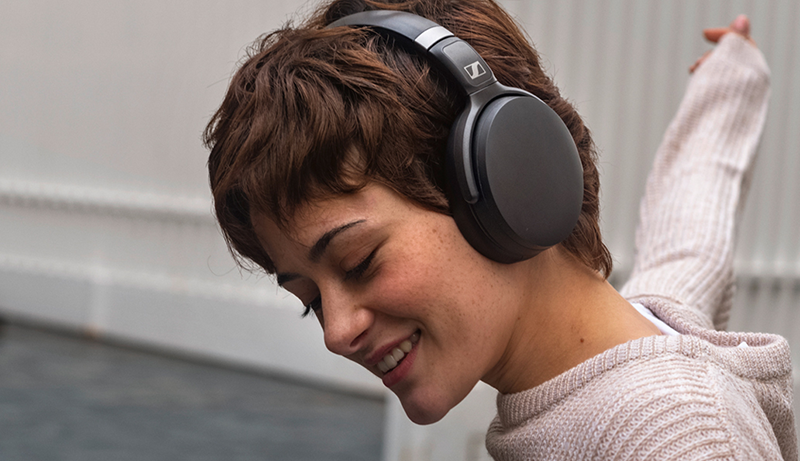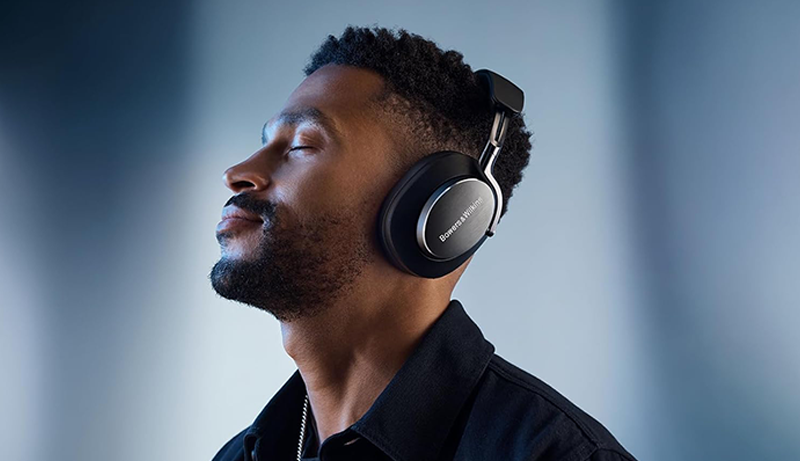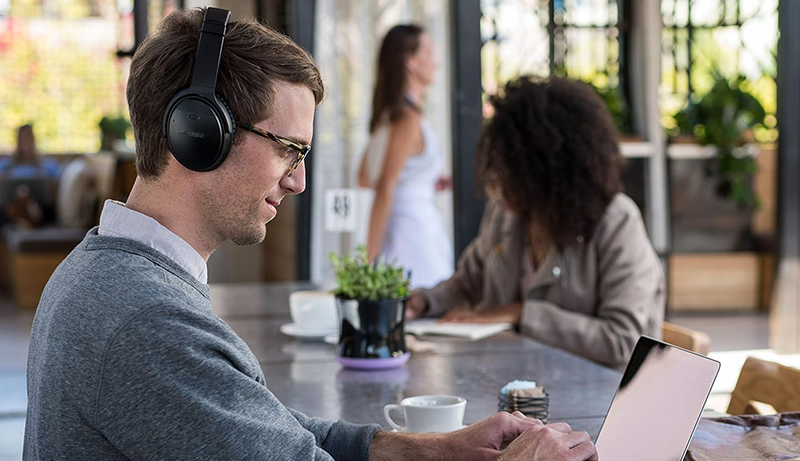Choosing the right camera for shooting interviews can feel overwhelming. Whether you’re a seasoned videographer, a journalist, or a content creator, having the right gear can significantly enhance your production quality.
The ideal camera for interviews should deliver excellent image clarity, high-quality audio, and a seamless experience for both the interviewer and the subject.
To help you make the best choice, we’ve put together a list of the top interview cameras for 2025—each selected for its standout features and performance.
Now, let’s take a closer look at the best cameras for capturing professional-grade interviews this year.
1. Canon EOS R6 Mark II
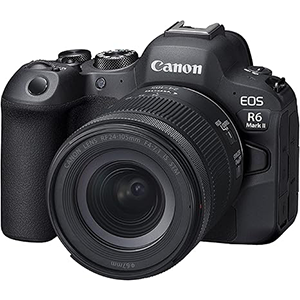
The Canon EOS R6 Mark II Mirrorless Camera is a powerful full-frame hybrid camera that strikes a perfect balance between performance and usability. Featuring a 24.2-megapixel CMOS sensor, it delivers exceptional image quality with rich detail and vibrant color reproduction, making it ideal for both photography enthusiasts and professionals alike. One of its standout features is its lightning-fast autofocus system, which consistently locks onto subjects with precision—even in challenging conditions—ensuring sharp, clear results every time.
Users praise the R6 Mark II for its superb low-light capabilities, allowing for clean, detailed shots even in dim environments. The in-body image stabilization system is highly effective, making handheld shooting smooth and reducing motion blur significantly. Its robust build gives a solid, professional feel, while the user-friendly interface and intuitive menu system make navigation effortless, even for beginners.
Users also highlight the value this camera offers, considering the high-end features and reliable performance it delivers. Whether you’re capturing stunning landscapes, fast-moving subjects, or cinematic video, the Canon EOS R6 Mark II proves to be a versatile and trustworthy tool. For those seeking a high-performance mirrorless camera that excels across the board, the R6 Mark II is a worthy investment.
2. Sony a7 III
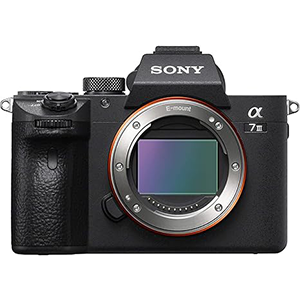
The Sony A7 III is a top-tier choice for interview videography, offering a powerful combination of image quality, speed, and versatility. At its core is a 24.2-megapixel full-frame back-illuminated (BSI) sensor with 1.8x readout speed and an impressive 15 stops of dynamic range. It supports 14-bit uncompressed RAW for maximum image quality and handles an extended ISO range from 50 to 204,800, making it highly capable even in low-light conditions.
Autofocus is a standout feature, with 693 phase-detection and 425 contrast-detection points covering 93% of the frame, ensuring fast and accurate subject tracking. The camera also includes 5-axis in-body image stabilization for smooth, steady footage—an essential for handheld shooting.
The A7 III captures 4K video and includes a Hybrid Log-Gamma (HLG) profile, which enables an instant HDR workflow for more dynamic and lifelike footage. Silent shooting is available at up to 10 frames per second with full AF/AE tracking, making it perfect for capturing candid moments without disruption.
Battery life is excellent, offering up to 710 shots using the LCD monitor or 610 via the viewfinder, and up to 210 minutes of continuous video recording. Compatible with Sony’s E-mount lenses, the A7 III gives creators extensive flexibility.
Based on our testing, the Sony A7 III excels in a variety of shooting scenarios—especially interviews—thanks to its advanced imaging capabilities, fast autofocus, extended ISO range, and reliable battery performance.
3. Fujifilm X-S10
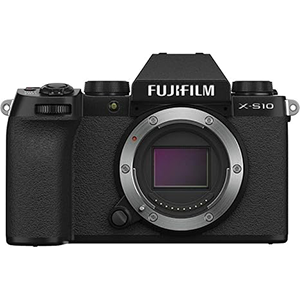
The Fujifilm X-S10 is an outstanding choice for shooting interviews, offering a perfect balance of performance, portability, and ease of use. Compact and lightweight, it features a deep, ergonomic grip that ensures secure handling, even when paired with larger lenses. The 180° vari-angle LCD screen makes it easy to frame shots from any angle—ideal for interview setups.
The camera delivers high-speed burst shooting up to 20fps and boasts lightning-fast 0.02-second autofocus, so you’re always ready to capture critical moments. Its advanced five-axis in-body image stabilization (IBIS) provides up to five stops of compensation, helping to maintain sharp, steady footage even when shooting handheld or in challenging lighting conditions.
For video, the X-S10 excels with cinema-quality DCI 4K/30p recording and ultra slow-motion Full HD at 240p. It also supports 10-bit 4:2:2 output over HDMI for professional-level color and detail. Creators will also enjoy 18 built-in film simulation modes—including the striking ETERNA Bleach Bypass—for adding a distinctive cinematic look straight out of the camera.
Backed by our research, the Fujifilm X-S10 stands out for its intuitive controls, robust video capabilities, and impressive image quality. Whether you’re filming interviews or other creative content, it’s a reliable and versatile tool that helps bring your vision to life with ease.
4. Nikon Z6
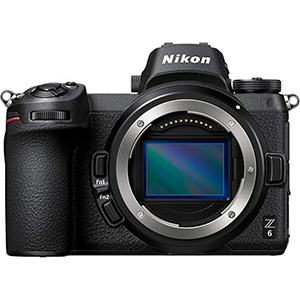
The Nikon Z6 full-frame mirrorless camera is an excellent choice for capturing high-quality interviews, offering a powerful blend of performance, speed, and image clarity. Equipped with a 24.5-megapixel back-illuminated CMOS sensor and Nikon’s large Z mount, it delivers sharp, vibrant images with outstanding depth and color accuracy.
Its 273-point phase-detection autofocus system ensures fast and precise focusing across a wide area of the frame—ideal for dynamic, fast-paced interviews. The camera also supports continuous shooting at up to 12 frames per second, allowing you to capture every crucial moment with ease.
When it comes to video, the Z6 doesn’t disappoint. It records in stunning 4K Ultra HD, providing crisp, detailed visuals that elevate your interview footage to a professional level.
From our hands-on experience, the Nikon Z6 strikes the perfect balance between resolution, speed, and low-light performance—making it a versatile and reliable tool for interview videographers looking to achieve top-tier results.
5. Sony Alpha ZV-E10
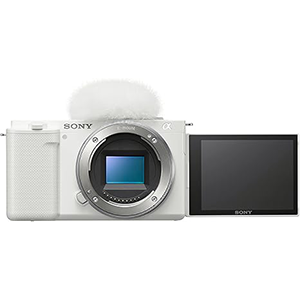
The Sony Alpha ZV-E10 is a feature-packed camera tailored for interviews, vlogging, and other video content creation. At its core is a 24.2-megapixel APS-C Exmor CMOS sensor paired with a high-speed BIONZ X processor, delivering impressive 4K video with full pixel readout and no pixel binning—ensuring crisp, detailed footage without artifacts.
Designed with creators in mind, the ZV-E10 includes a Showcase Mode that smoothly shifts focus between your face and an object in front of the lens, making product demonstrations and on-the-fly focus changes seamless. The dedicated Background Defocus button allows you to instantly blur the background, helping subjects stand out with a professional look.
One of the standout features is its simple live streaming capability—just connect via USB, with no need for additional hardware or software. Real-time eye autofocus and subject tracking ensure your focus stays locked, even during movement. Additional features include Bluetooth and Wi-Fi connectivity, a stereo mic input, and a continuous shooting speed of up to 11 fps.
With its smart design, advanced autofocus, and excellent video quality, our experience shows the Sony Alpha ZV-E10 is a reliable and efficient camera for interviews and content creation alike.
Best Camera for Interviews – Buyer’s Guide
Choosing the right camera for interviews involves more than just picking the one with the highest resolution. Based on our experience, the ideal interview camera should offer a balanced mix of image quality, functionality, ease of use, and adaptability to your specific needs.
Image Quality
High-resolution video is essential for professional-looking interviews. A camera capable of recording in 4K—such as the Sony A7 III with its 4K at 30fps—ensures your footage is sharp, detailed, and visually engaging.
Audio Quality
Clear, high-quality audio is just as important as great visuals. While built-in microphones are convenient, having an external microphone input gives you far more control and flexibility, especially in noisy environments or when recording multiple speakers.
Autofocus
A reliable autofocus system is key for interviews. The best cameras offer fast, accurate tracking that keeps your subject in focus—even if they move slightly during the conversation.
Low-Light Performance
Interview lighting conditions can vary, especially in uncontrolled environments. A camera with strong low-light performance allows you to maintain image clarity and detail without introducing noise.
Portability and Ease of Use
If you’re shooting on location, portability matters. Lightweight, compact cameras with intuitive controls make setup faster and filming easier. A flip-out or tilting screen is also helpful for monitoring your shot when you’re behind the camera or filming yourself.
Lens Options
Interchangeable lens systems offer flexibility and creative control. A wide-aperture lens can provide a beautifully blurred background, making your subject stand out—an often sought-after effect in interview setups.
File Formats
Pay attention to the file formats your camera supports. Formats like RAW or ProRes offer greater flexibility in post-production, especially when color grading or editing in detail is required.
Battery Life
Extended battery life is crucial for long interviews or when shooting multiple takes. Look for cameras that can handle prolonged sessions without frequent battery changes.
Price
Your budget will ultimately influence your choice. While premium models come with advanced features, many mid-range or budget-friendly cameras still deliver impressive performance. Whether you choose a high-end DSLR, a compact mirrorless model, or a specialized camcorder, there are great options at every price point.
In summary, the best camera for interviews is one that aligns with your workflow, environment, and creative vision—balancing performance with practicality.


